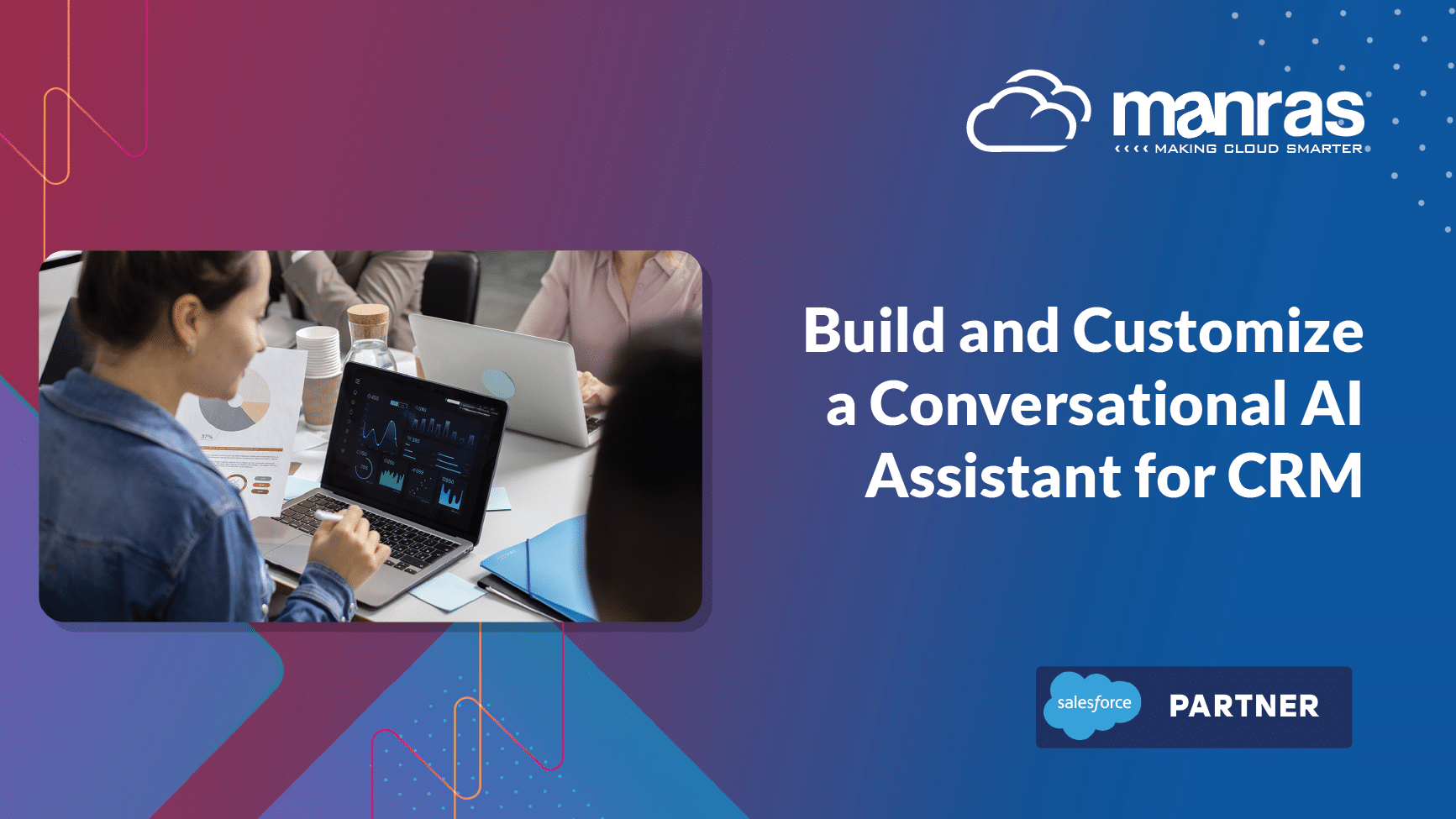
Build and Customize a Conversational AI Assistant for CRM
In today’s fiercely competitive business landscape, prioritizing exceptional customer experiences is imperative for companies aiming to foster growth and attain success. Within this digital era, where customers are tech-savvy and demand instant support through a multitude of online and offline channels, the conversational AI assistant emerges as a valuable ally. It aids businesses in optimizing outcomes while efficiently controlling expenses.
In this article, we’ll explore conversational AI for customer relationship management, and provide insights on implementing conversational AI in CRM and how to build and personalize an AI-powered assistant for CRM.
What is a Conversational AI Assistant?
Conversational AI assistants, computer programs that undergo extensive training on vast amounts of text and code, possess the capability to comprehend and respond to human language. By leveraging techniques like natural language processing (NLP), machine learning (ML), and dialogue management, these assistants deliver responses infused with both information and engagement.
Components of a Conversational AI Assistant
To build and customize conversational AI for customer relationship management, it is essential to understand the following components of a conversational AI assistant:
1. Natural Language Processing
AI’s subfield, Natural Language Processing (NLP), has its focus on the processing of natural language by both humans and computers. This dedicated field involves language tasks like understanding, speech recognition, and language translation. NLP equips the conversational AI assistant with the ability to understand the meaning and context of user inputs.
2. Machine Learning
Conversational AI Assistants are often trained using machine learning algorithms. These algorithms learn from extensive datasets of human interactions and refine their responses over time. Unsupervised and supervised machine learning techniques are employed within this context.
3. Dialog Management
Dialog management involves keeping track of the conversation’s context and formulating appropriate responses. It ensures a natural flow of conversation, enabling the Conversational AI Assistant to react consistently to user input.
4. Speech Recognition
In situations where users interact through speech, speech recognition technology converts spoken words into text, allowing the Conversational AI Assistant to process them effectively.
5. Intent Recognition
Conversational AI Assistants need to identify the user’s intent to provide relevant responses. Intent recognition algorithms classify user inputs into specific categories, allowing the assistant to understand the user’s needs and intentions accurately.
How to Build and Customize an AI-powered Assistant for CRM?
Here’s a step-by-step guide for building your own conversational AI assistant for CRM using Salesforce applications:
1. Define Use Cases
Begin by identifying specific areas where the conversational AI assistant can bring value. It can assist with tasks like lead management, customer support, data entry, or analytics within your CRM.
2. Choose a Development Platform
Select a suitable platform or framework for building your AI-powered Assistant for CRM. These platforms provide resources for creating conversational sequences and incorporating them with external APIs.
3. Integrate with Salesforce
Ensure seamless integration with Salesforce using Salesforce’s REST APIs to interact with CRM data. Perform operations like data retrieval, record creation, updates, and deletions. Establish robust authentication and authorization mechanisms for secure communication between your AI assistant and Salesforce applications.
4. Design Conversational Flows
Thoughtfully craft the conversation flow, considering user inputs and system responses. Utilize intents, entities, and contexts to understand user queries and provide relevant responses. Create dialogues to guide users through CRM processes, such as updating customer information or querying sales data.
5. Implement NLP and Dialog Management
Implement natural language processing (NLP) techniques to understand user intent and extract relevant information from user messages. Incorporate dialogue management to handle multi-turn conversations, context changes, and error handling gracefully.
6. Implement Salesforce Operations
Use Salesforce APIs to perform operations such as creating leads, updating opportunities, or retrieving customer information based on user requests. Ensure robust error handling and validation mechanisms for scenarios where Salesforce operations encounter issues.
7. Add Contextual Intelligence
Enhance your AI assistant with contextual intelligence to store conversation history and user preferences for personalized interactions. Employ machine learning algorithms to predict user needs based on historical data and provide proactive suggestions.
8. Testing and Quality Assurance
Conduct thorough testing to ensure your conversational AI assistant adeptly handles various user inputs and scenarios. This should encompass both functional and user acceptance testing to validate the assistant’s overall performance.
9. Deployment and Monitoring
Deploy your conversational AI assistant to the chosen platforms, whether it’s for web, mobile, or messaging applications. Utilize analytics tools to monitor its performance, extract insights into user interactions, and facilitate continuous enhancements.
10. Continuous Improvement
Collect user feedback and analyze interactions to identify areas for improvement. Continuously update and enhance your AI-powered Assistant for CRM to deliver superior user experiences and address evolving user requirements.
Conclusion
Building a conversational AI assistant for CRM with Salesforce is a transformative journey that blends human interactions with advanced technology, resulting in improved customer experiences and streamlined business operations. As you embark on this transformative journey consulting a certified Salesforce consultant like Manras can be a game-changer. With specialized knowledge and practical experience, Manras ensures a smooth and efficient CRM integration with Conversational AI, perfectly tailored to your specific requirements.



